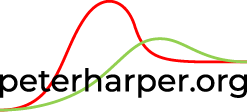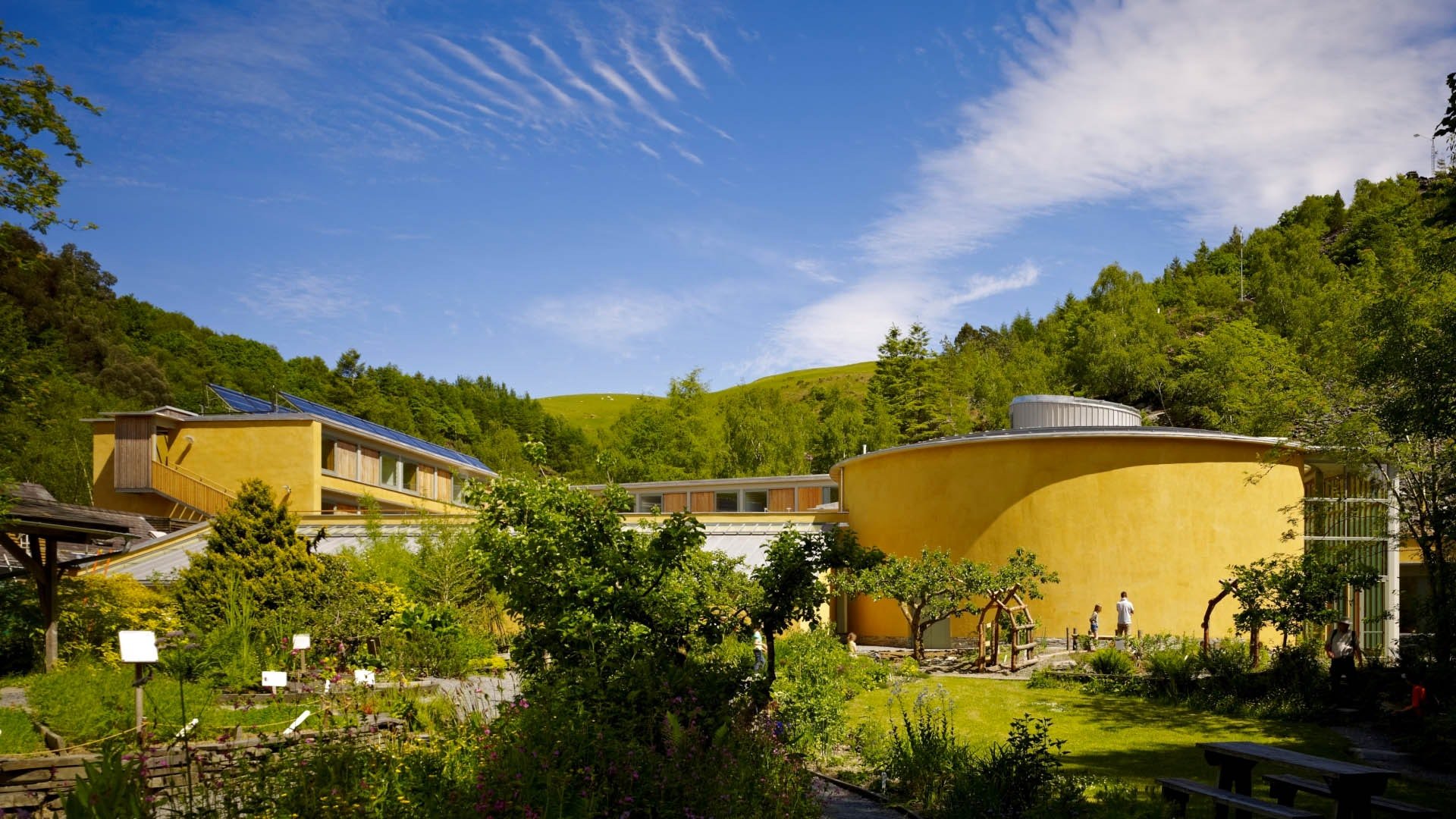The Centre for Alternative Technology (CAT)
CAT has been an influential focus of environmental innovation for over forty years. As a dedicated member of its core staff I was an enthusiast for its general mission, and this confident optimism colours some of the material in this section.
In recent years it appears that some of this confidence was misplaced. It has to be frankly acknowledged that as of late 2014, CAT was in a difficult situation, having narrowly avoided complete collapse in the immediately preceding years. Staff, turnover and activity were all sharply reduced relative to the apogee of 2003-8 when the organisation was still growing strongly. Many of the features for which CAT has become famous, such as workplace democracy, narrow wage differentials, a residential community 'walking its talk', and generating most of its own energy, were in abeyance.
This severe crisis generated a number of reforms and I am now confident that the organisation will be able to regain much of its former glory, leaving behind a sense of having come through the neck of an hourglass.
There is of course a considerable literature produced by CAT and about CAT. I'll offer a few sample items here, that I hope will complement the materials obtainable from CAT itself, principally from its web site: www.cat.org.uk . Recently we have taken steps to record and catalogue as much as we can about the crucial founding years of the seventies, and this will continue into the eighties and nineties.
I would like to refer to a number of items from the pre-crisis CAT, unblemished by the recent disappointments.
The early history of CAT is particularly fascinating because it shows all manner of attempts to grapple with ‘alternative’ values and ways of doing things. CAT’s most precious relic is a hand-written diary kept in 1974, and lovingly photocopied for posterity by my former colleague Rick Dance:
Here are some others:
What is the difference between an ecovillage and an eco-centre?
The influence of CAT on the local economy
CAT and the Legacy of E.F. Schumacher 2008 (doc)
Interview with Peter Harper 2010 (htm)
Here is a presentation about the evolution of technical systems:
Buildings and technical systems at CAT 2013 (ppt)
Finally (for the time being) here is an assessment of CAT's achievements that began in 1995 and has been updated regularly ever since. One of CAT's important slogans is "Failure is the Compost of Success": that we often learn more from innovating, trying and failing, than from following the tried-and-tested. So we have traditionally relished "warts 'n all" accounts. However the recent failures have been extremely chastening. The contrast between the breezy optimism shown in this next document, and the later comments and evaluations, speaks for itself. We are certainly sadder, but are we any the wiser?
By 2023 CAT was obliged to close the drop-in Visitor facilities, long regarded as its proncipal activity. But this is still not the end!
Drawing on the much-extended versioin of ‘Songs of Experience’, I tried to condense a lot of the historical matter into two articles. The first was mainly about the technology, but in a special communitarian context. It was published in Science as Culture, the successor to the 1970s Radical Science Journal, of which I was a member of the editorial ‘collective’. How quaint that now sounds!
Alternative Technology and Social Organisation in an Institutional Setting PDF 2016
The second historical document remains unpublished, but charts the changes in organisational structure up until the great crisis of 2010, after which it was impossible to obtain any information. It is a bit like a huge shaggy-dog story, a joke without a punch-line.
The Evolution and Collapse of Third-Sector Values Doc 2016
This ripping yarn failed to find an academic publisher — perhaps it was just too ripping — so with the help of colleagues it was modified, but so far has been rejected as not quite kosher. The new version is:
Demanding the Impossible Doc 2022
Would anybody care to publish this?

